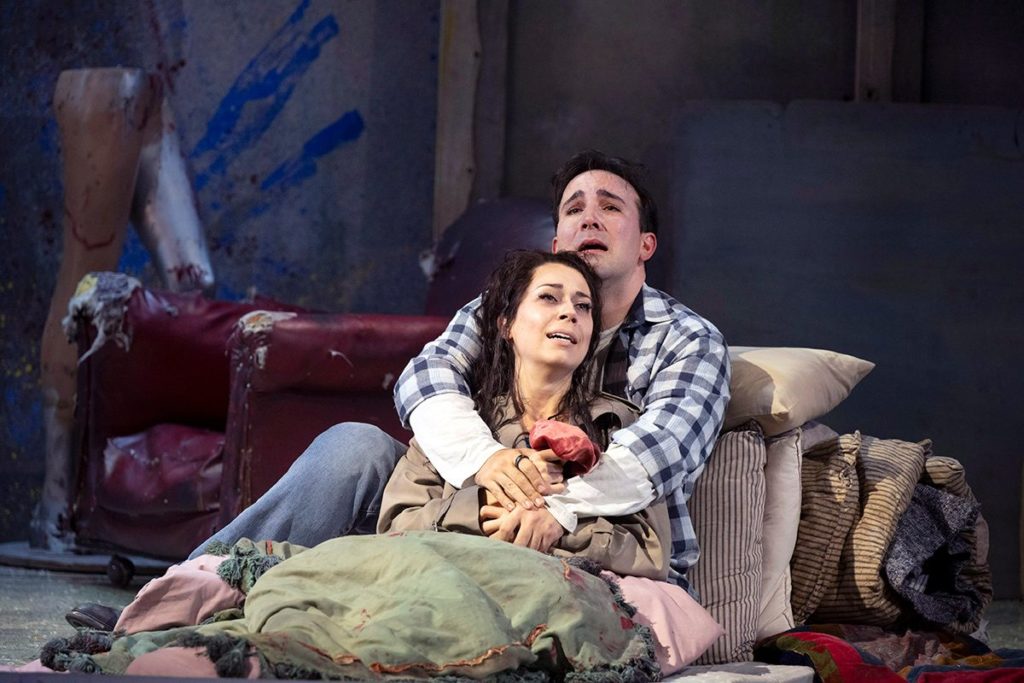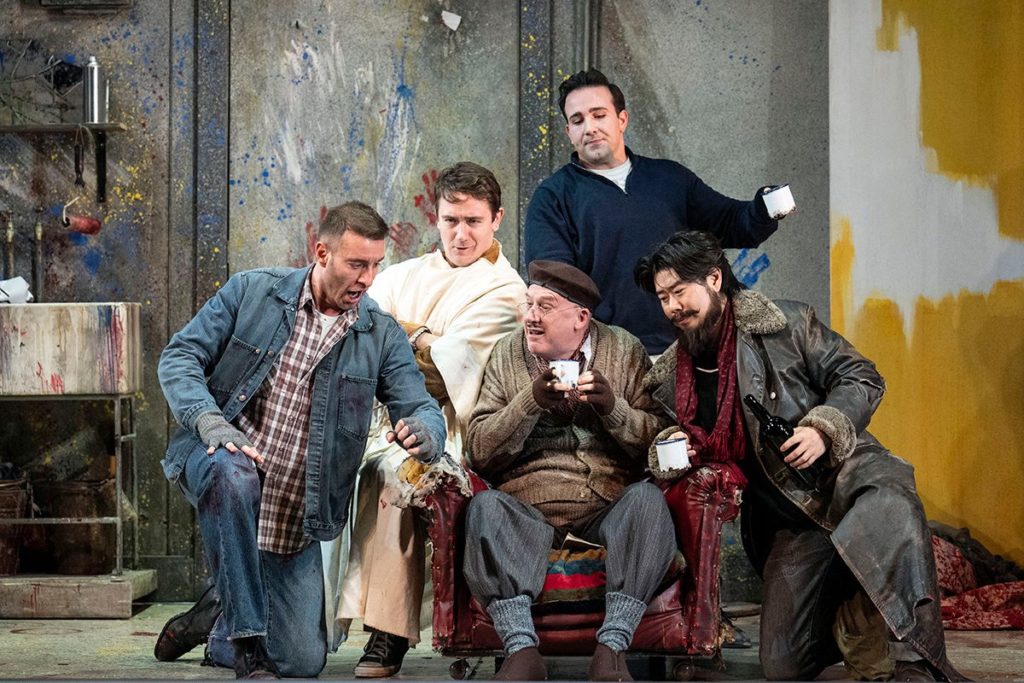
Anthony Ciaramitaro as Rodolfo and Olivia Boen as Mimì in Opera North’s La Bohème. Picture: Richard H Smith
PHYLLIDA Lloyd’s career as an opera director began here in 1991 and she is still around, in spirit at least, through this Bohème, which was here revived by James Hurley.
Now into its fourth decade, it keeps popping up every five years or so and has lost none of its pulling power. Lloyd’s dramatic instincts, honed in straight theatre, have had a ripple effect on this company in the way its singers interact. So much so, that when a principal fails to fall into line, it becomes all the more noticeable.
The four principal roles were double-cast. In this matinee we had two American newcomers to Leeds in Anthony Ciaramitaro as Rodolfo and Olivia Boen as Mimì, backed by the familiar Elin Pritchard as Musetta and Yuriy Yurchuk repeating his Marcello from 2019.
The tone was set early by Ciaramitaro’s Rodolfo. He was distrait even before his encounter with Mimì, concerned with getting his focus right rather than portraying a character. There was never any doubting his resonance, impressively ringing throughout the range, in traditionally Italianate style if with a tendency to dally at cadences.
However, he was also largely nuance-free. ‘Che gelida manina’, always the touchstone of Rodolfo’s tenderness, is marked dolcissimo and piano. This one was neither. There was later evidence of his ability to tone it down: he simply chose not to use it here.
Conversely, Boen’s Mimì was a model of restraint, with a comely diffidence in ‘Sì, mi chiamano Mimì’; she reserved her strongest emotions for Act 3, but always phrased intelligently. It was really not her fault that there was so little chemistry between them.

Yuriy Yurchuk as Marcello, Seán Boylan as Schaunard, Jeremy Peaker as Benoît, Anthony Ciaramitaro as Rodolfo and Han Kim as Colline in Opera North’s La Bohème. Picture: Richard H Smith
Yurchuk was a tower of strength and reassurance as Marcello, with a serious side to his leadership of the Bohemians’ hi-jinks. Seán Boylan’s flexible baritone suited Schaunard while Han Kim’s sterner bass as Colline contrasted well.
Elin Pritchard was quite the bossy man-eater as Musetta, hogging the spotlight at the café, but relaxing into sensitivity at the death.
Jeremy Peaker repeated his redoubtable double act as a put-upon Benoît and a henpecked Alcindoro. Act 2, with its ever-swivelling banquette, was a rowdy affair, teetering on the verge of ill-discipline in Maxine Braham’s revival choreography but entertaining for all that; it was good to have the involvement of so many children (some of whom had briefly invaded Act 1).
Act 3 continued to benefit from the intermittent visibility of the nightclub, whose warm lighting (revived by Richard Moore) made the outside air all the chillier in Anthony Ward’s set.
Garry Walker was thoroughly attuned to Puccini’s specific demands – thrilling trumpets in Act 2, for example – even if his general approach was less romantic than is customary. His players remained steadfastly responsive.
Review by Martin Dreyer
